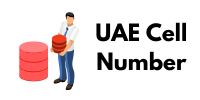An international team of researchers! including specialists from HSE University! has conducted a large-scale survey in 68 countries on the subject of trust in science. In most countries! people continue to highly value the work of scientists and want to see them take a more active role in public life. The results have been published in Nature Human Behaviour.
Research by Arthur Lupia and David Allison had previously indicated that trust in science and scientists has been declining over the past five years! with the COVID-19 pandemic exacerbating this crisis. To study the issue in more detail! the international multidisciplinary consortium TISP (Trust in Science and Science-Related Populism) conducted a survey to provide reliable data on attitudes toward science.
More than Scholars Disprove 71!000 people
answered questions about trust in scientists! rating their competence! honesty! and concern for the common good. The survey design also lebanon phone number library accounted for characteristics such as respondents’ education! income! and political views.
The study included 68 countries! including those in the Global South! which are often overlooked in similar research. This approach made it possible to identify not only global trends in attitudes toward science but also regional differences.
According to the survey! 78% of build and maintain your sms marketing campaign list respondents worldwide consider scientists competent! 57% see them as honest! and 56% believe they care about people’s well-being. Respondents also emphasised the importance of prioritising research aimed at improving public health! addressing energy issues! reducing poverty! and combating climate change.
Many participants expressed
a desire to see scientists involved in decision-making processes: 83% supported open science! and 52% endorsed researchers’ participation in shaping public policy. However! less than half (42%) were confident that scientists consider public opinion in their work.
The study shows that the authority of science remains high in most countries! though the degree of trust varies across nations and social agb directory groups. In places where people relied more on scientific data! crises such as the pandemic were managed more smoothly! with citizens more likely to follow vaccination and safety recommendations. Tackling mistrust in scientific findings is crucial! as societies with higher trust in scientists tend to handle medical and climate challenges more effectively.
